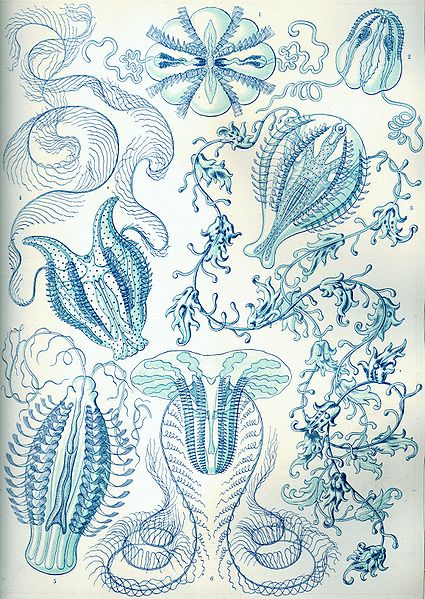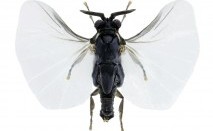
Category: Invertebrates

This phylum of animals inhabits marine waters worldwide. They are named for their distinctive rows of cilia, or combs, that they use swimming – they are actually the largest organism in the world that uses cilia for locomotion. They possess a decentralized nerve net rather than a brain and display a wide range of body forms –for example, coastal species have sturdy bodies that are able to withstand constant buffeting by waves while some open-ocean species are so fragile it is difficult to collect them for study.

Body horror in the insect kingdom
Learning about animals, you can discover many fascinating, even beautiful facts, but there are also things that can give you nightmares! Enter the strepsiptera (“twisted-wing parasite”). The adult female has no limbs, wings, or mouth - she simply lives in and feeds off her host (typically a wasp). When it becomes time to mate, she protrudes part of her abdomen from between the plates of her host and uses mind control to get the wasp to fly off to nearby males. Sexually mature males have wings, and fly around for about five hours before dying - spending their entire short existence seeking out females to mate with. After the female is impregnated, her own young grow and consume her. And once there is nothing left to eat, they leave their host wasp, infiltrate the nursery, and latch on to a larvae to create their own “zombie wasp” host and continue the grisly cycle!
Learn more >>
 Discover Animals is a web-based educational resource offered by the NAIA
Discover Animals is a web-based educational resource offered by the NAIA